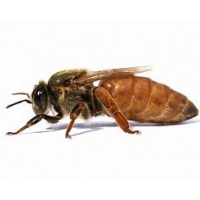Minnesota Hygienic Honey Bees: A Hopeful Buzz in Beekeeping
Honey bees, vital pollinators and honey producers, face a multitude of threats. One ray of hope comes in the form of the Minnesota Hygienic Honey Bee, a bee variety bred specifically for disease resistance and natural mite detection.
Born from Decades of Research
The Minnesota Hygienic Bee is the brainchild of Dr. Marla Spivak and her team at the University of Minnesota's Bee Lab. Established in 1991, the lab focused on studying bees exhibiting hygienic behavior, the natural ability to remove diseased brood and parasites from the hive. Through selective breeding and close monitoring, researchers developed a bee line with a higher prevalence of this crucial behavior, leading to the birth of the Minnesota Hygienic Honey Bee.
Strength in Numbers
These bees boast two key strengths:
- Disease Resistance. They display increased resistance to specific brood diseases like American Foulbrood and Chalkbrood. This natural defense mechanism helps protect the hive's health and potentially reduce the need for external treatments.
- Mite Detection and Removal. Minnesota Hygienic Bees exhibit both Varroa Sensitive Hygiene (VSH) and Varroa Sensitive Grooming (VSG). This means they can actively detect and remove Varroa mites, parasitic pests that contribute to bee colony decline. Their ability to identify and eliminate these mites helps control their population and mitigate potential disease transmission within the hive.
Not a Silver Bullet
While offering unique advantages, Minnesota Hygienic Bees are not a complete solution to beekeeping's challenges. They remain susceptible to Colony Collapse Disorder (CCD), a complex issue with multiple contributing factors still requiring further research. Additionally, these bees are not yet as readily available as traditional bee breeds, and their initial cost might be higher.
A Buzzing Future
Despite these limitations, Minnesota Hygienic Honey Bees mark a significant step forward in the fight for healthier bee populations. Their natural disease resistance and mite detection capabilities offer beekeepers a valuable tool to promote hive health and potentially reduce reliance on chemical treatments. As research continues, these bees hold the promise of a brighter future for beekeeping and the crucial role bees play in our ecosystem.
